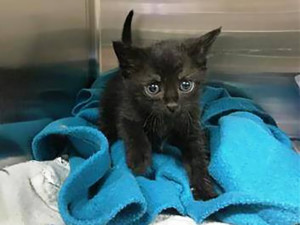 If you’ve recently been playing with your cat and found that they gave you an unpleasant nip (or worse), it’s good to know that this is not an abnormal trait, despite it potentially being potentially painful. Cats play biting during their playtime is tied to the natural instincts, which are often quite aggressive, and is not due to your cat being a particularly nasty feline. In this article, we take a look at why cats like to bite while playing with their owners and dig a little deeper to find if there’s anything you can do about it.
If you’ve recently been playing with your cat and found that they gave you an unpleasant nip (or worse), it’s good to know that this is not an abnormal trait, despite it potentially being potentially painful. Cats play biting during their playtime is tied to the natural instincts, which are often quite aggressive, and is not due to your cat being a particularly nasty feline. In this article, we take a look at why cats like to bite while playing with their owners and dig a little deeper to find if there’s anything you can do about it.
Keep your cat’s instincts in mind
Although aggressive play might compel you to research cat insurance in Australia for fear of having a particularly aggressive cat, it’s good to keep in mind that this is a form of behaviour that many cats embody. Biting during playtime doesn’t necessarily indicate that your cat wants to stop playing – on the contrary, it’s their way of demonstrating that they want to take playtime up a notch. If they really get into the zone, this kind of behaviour can result in your whole hand – or even arm – getting clawed up, but this is just a case of them really getting in touch with their predatory instincts, and these primal urges are not easily controlled. This biting frenzy can actually be induced by pet owners who play roughly with their cat, as it is this aggressive show from the owner that the cat is directly responding to (so don’t be too surprised if you get bitten after a particularly rough time playing with your cat). If your cat recognises that you love to play aggressively, this might actually reinforce their biting behaviour, as they might see it as being encouraged by you.
Preventing surprise cat bites
Thankfully, there are definitely ways to stop your cat from getting too nippy during play time. By far the best way to do this is to stop reinforcing their aggressive behaviour by developing a better understanding of their body language. As soon as you see certain signs, such as your cat adjusting their stance or the positions of their ear, tail or eyes as if they’re about to pounce, just back off. By responding to these signs you’re just enabling bad behaviours in your cat, and the longer these are kept up, the harder the habits are going to be for your cat to break. It’s also important to not make yourself the toy during playtime – rather, rely on stimulating toys to help redirect their attention to something that isn’t your hand or arm. If they still want to claw up your poor hand, then throwing a toy in another direction completely might help instead.
What not to do
Whatever you do, do not respond with aggression if you get clawed up by your cat. Although it might be far from pleasant, punishing a cat physically will only make the animal more fearful of humans, and you in particular. Alternatively, it could also go the other way and further reinforce the bad behaviour of your cat due to your own show of aggression also seeming like a bit of play. Remember – if your cat continues to give you grief during playtime, just keep walking away until they get the idea.


